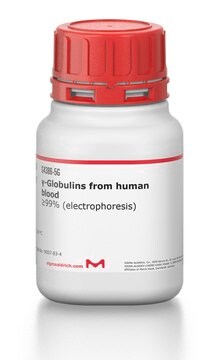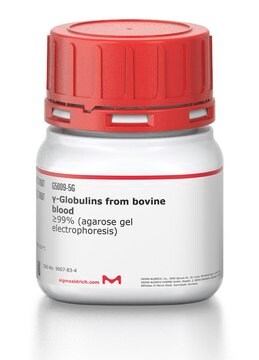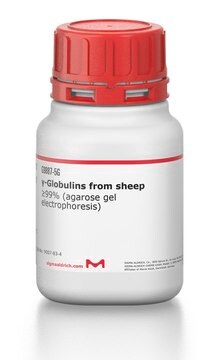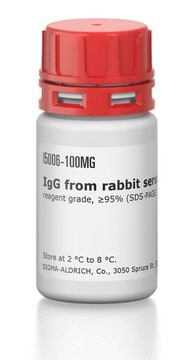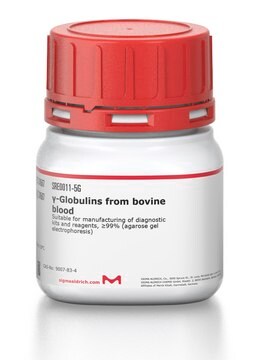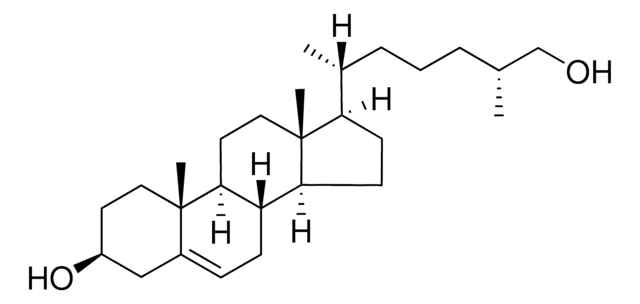G2018
γ-Globulins from rabbit
≥99% (agarose gel electrophoresis)
Sign Into View Organizational & Contract Pricing
All Photos(1)
About This Item
Recommended Products
biological source
rabbit
Assay
≥99% (agarose gel electrophoresis)
form
powder
impurities
≤5% NaCl
solubility
0.9% NaCl: soluble 50 mg/mL
storage temp.
−20°C
General description
γ-Globulin molecules is made up of four polypeptide chains, of which two have molecular weights of about 50,000 and two of about 20,000. These chains are cross-linked by disulfide bonds.
Application
γ-Globulins was used in the isolation and rearrangement of simple isoimides (iminoanhydrides).
Preparation Note
Prepared from plasma
Storage Class Code
11 - Combustible Solids
WGK
WGK 3
Flash Point(F)
Not applicable
Flash Point(C)
Not applicable
Personal Protective Equipment
dust mask type N95 (US), Eyeshields, Gloves
Certificates of Analysis (COA)
Search for Certificates of Analysis (COA) by entering the products Lot/Batch Number. Lot and Batch Numbers can be found on a product’s label following the words ‘Lot’ or ‘Batch’.
Already Own This Product?
Find documentation for the products that you have recently purchased in the Document Library.
The reactions of inter- and intra-chain disulphide bonds in proteins with sulphite
R. Cecil, R. G. Wake
BioChemistry: An Indian Journal, 3, 401 - 406 (1962)
Isolation of a new intermediate in the papain cleavage of rabbit gamma-globulin.
NELSON CA
The Journal of Biological Chemistry, 3727-3732 (1964)
Chandreyee Das et al.
Current protocols in protein science, 81, 29-29 (2015-08-04)
Quantitating relative levels of detergent present in protein preparations or samples derived from biological material, such as tissue or body fluids, is important because the presence of detergent may affect downstream analyses as well as protein structure/function. Especially because sample
Panojot Bifsha et al.
Molecular neurobiology, 54(7), 4921-4935 (2016-08-16)
Dysfunction of midbrain dopaminergic (mDA) neurons is involved in Parkinson's disease (PD) and neuropsychiatric disorders. Pitx3 is expressed in mDA neuron subsets of the substantia nigra compacta (SNc) and of the ventral tegmental area (VTA) that are degeneration-sensitive in PD.
Our team of scientists has experience in all areas of research including Life Science, Material Science, Chemical Synthesis, Chromatography, Analytical and many others.
Contact Technical Service